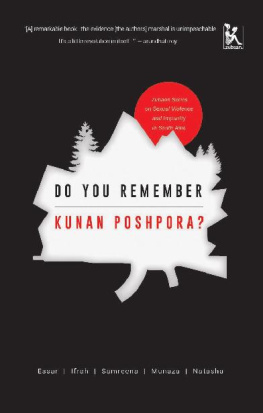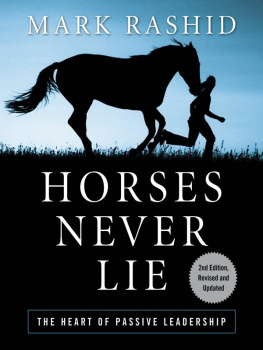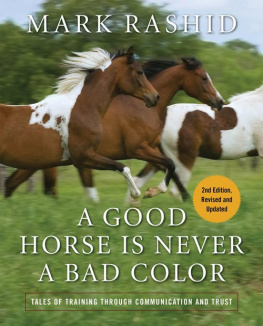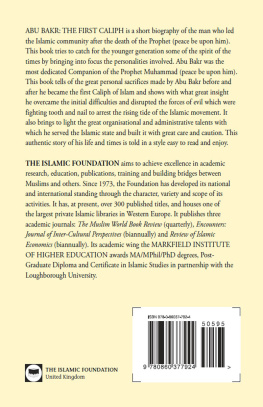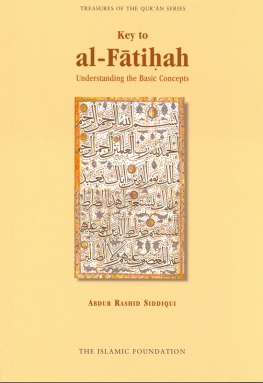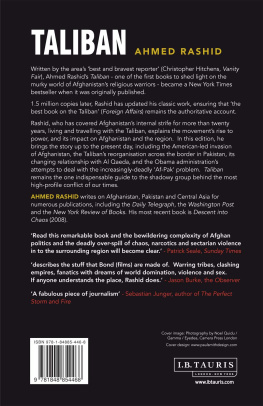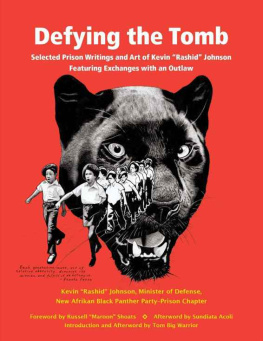Munaza Rashid - Do you remember Kunan Poshpora?
Here you can read online Munaza Rashid - Do you remember Kunan Poshpora? full text of the book (entire story) in english for free. Download pdf and epub, get meaning, cover and reviews about this ebook. year: 2016, publisher: Zubaan, genre: Home and family. Description of the work, (preface) as well as reviews are available. Best literature library LitArk.com created for fans of good reading and offers a wide selection of genres:
Romance novel
Science fiction
Adventure
Detective
Science
History
Home and family
Prose
Art
Politics
Computer
Non-fiction
Religion
Business
Children
Humor
Choose a favorite category and find really read worthwhile books. Enjoy immersion in the world of imagination, feel the emotions of the characters or learn something new for yourself, make an fascinating discovery.
- Book:Do you remember Kunan Poshpora?
- Author:
- Publisher:Zubaan
- Genre:
- Year:2016
- Rating:5 / 5
- Favourites:Add to favourites
- Your mark:
- 100
- 1
- 2
- 3
- 4
- 5
Do you remember Kunan Poshpora?: summary, description and annotation
We offer to read an annotation, description, summary or preface (depends on what the author of the book "Do you remember Kunan Poshpora?" wrote himself). If you haven't found the necessary information about the book — write in the comments, we will try to find it.
Do you remember Kunan Poshpora? — read online for free the complete book (whole text) full work
Below is the text of the book, divided by pages. System saving the place of the last page read, allows you to conveniently read the book "Do you remember Kunan Poshpora?" online for free, without having to search again every time where you left off. Put a bookmark, and you can go to the page where you finished reading at any time.
Font size:
Interval:
Bookmark:

On a cold February night in 1991, a group of soldiers and officers of the Indian Army pushed their way into two villages in Kashmir, seeking out militants assumed to be hiding there. They pulled the men out of their homes and subjected many to torture, and the women to rape. According to village accounts, as many as 31 women were raped.
Twenty-one years later, in 2012, the rape and murder of a young medical student in Delhi galvanized a protest movement so widespread and deep that it reached all corners of the world. In Kashmir, a group of young women, all in their twenties, were inspired to re-open the Kunan-Poshpora case, to revisit their history and to look at what had happened to the survivors of the 1991 mass rape. Through personal accounts of their journey, this book examines questions of justice, of stigma, of the responsibility of the state, and of the long-term impact of trauma.
ESSAR BATOOL, IFRAH BUTT, SAMREENA MUSHTAQ, MUNAZA RASHID and NATASHA RATHER are students and lawyers who work in Kashmir.


ZUBAAN
128 B Shahpur Jat, 1st floor
NEW DELHI 110 049
Email:
Website: www.zubaanbooks.com
First published by Zubaan 2016
Published in collaboration with the International Development Research Centre (IDRC).
Copyright Essar Batool, Ifrah Butt, Samreena Mushtaq, Munaza Rashid, Natasha Rather 2016
All rights reserved
10 9 8 7 6 5 4 3
eBook ISBN: 9789384757847
Print source ISBN: 9789384757663
This eBook is DRM-free.
Zubaan is an independent feminist publishing house based in New Delhi with a strong academic and general list. It was set up as an imprint of Indias first feminist publishing house, Kali for Women, and carries forward Kalis tradition of publishing world quality books to high editorial and production standards. Zubaan means tongue, voice, language, speech in Hindustani. Zubaan publishes in the areas of the humanities, social sciences, as well as in fiction, general non-fiction, and books for children and young adults under its Young Zubaan imprint.
Typeset in Garamond 11/14 by Jojy Philip, New Delhi 110 015
Printed and bound at Raj Press, R-3 Inderpuri, New Delhi 110 012

Hello Reader!
This is just a note to let you know that all Zubaan ebooks are completely free of digital rights management (that is, DRM-free), so that you can read them on any of your devices and download them multiple times. We believe that this makes for a more trouble-free and pleasurable reading experience. To be fair to our authors and to enable us to continue publishing and disseminating their work, we appeal to you to buy copies of this ebook rather than share or give it away free. Thank you for your support and cooperation. And happy reading!
We knew that if we remained silent, they would do it again, if not in our village then somewhere else.
A survivor

Urvashi Butalia, Laxmi Murthy and Navsharan Singh
Afreen Faridi
Sahba Husain
- Making Sense of the Kunan Poshpora Mass Rape:
Sexual Violence and Impunity in Kashmir
Urvashi Butalia, Laxmi Murthy and Navsharan Singh

The Sexual Violence and Impunity project (SVI) is a three-year research project, supported by the International Development Research Centre (IDRC), Canada, and coordinated by Zubaan. Led by a group of nine advisors from five countries (Bangladesh, India, Nepal, Pakistan, Sri Lanka), and supported by groups and individuals on the ground, the SVI project started with the objectives of developing and deepening understanding on sexual violence and impunity in South Asia through workshops, discussions, interviews and commissioned research papers on the prevalence of sexual violence, and the structures that provide impunity to perpetrators in all five countries.
The project began with some key questions and concerns. We noted that recent histories and contemporary political developments in South Asia had shown an exponential increase in sexual violence, particularly mass violence. And yet, even as such violence had increased across the region, so had the ever-deepening silence around it.
Why, for example, had the end of 25 years of violent conflict in Sri Lanka in May 2009 not resulted in an open and frank discussion about sexual violence as a weapon of war? Why had the International Crimes Tribunal (Bangladesh) of 2009 set up to investigate and prosecute suspects for the genocide committed in 1971 by the Pakistan Army and their local collaborators, paid such little attention to the question of mass rape, despite it being widely acknowledged that it had happened and many women having spoken out about it. Why did discussions on Kashmir in India or Swat in Pakistan, simply ignore the question of sexual violence? Why was caste violence, violence against sex workers and men and transgender persons barely spoken about?
Nor was silence the only issue here. Crucial to maintaining the silence was and is the active collusion of States in providing impunity to perpetrators, sometimes under the guise of protective laws and special powers to the armed forces, at others under the guise of nationalism. So heavily were the odds stacked against women that, until recently, very few had dared to speak out. Backed by culture, and strengthened by the State, and often with the active collusion of non-state actors, impunity then, remained largely unchallenged.
We asked ourselves if these conditions were specific to the South Asian region. Elsewhere in many parts of the world, we noted, rape was increasingly being discussed and accepted, not only as a weapon of war, but also as a crime against humanity and as an instrument of genocide. The 1998 Akeyesu judgment by the International Criminal Tribunal for Rwanda (ICTR) provided a clear definition of rape and delineated its elements as a crime against humanity and as an instrument of genocide. In the International Criminal Tribunal for the former Yugoslavia (ICTY) jurisprudence pioneered the approach that used acts of rape and other forms of sexual violence to include elements of other international crimes such as torture, enslavement, and persecution, which previously had not been litigated in the context of gender violence.
The Special Court for Sierra Leone (SCSL) brought into jurisprudence on violations of international humanitarian law a particular form of sexual violence prevalent in the conflict in Sierra Leone forced marriages. In this case, forced marriage was distinguished from sexual slavery or sexual crimes and argued as a crime against humanity. Building on the progressive development of the case law for sexual and gender-based violence under ICTR, ICTY and SCSL, the Rome Statute of the International Criminal Court (ICC) includes rape and forms of sexual violence as part of the crimes of Genocide, Crimes against Humanity, and War Crimes, and specifically enumerates rape, forced prostitution, sexual slavery, forced pregnancy, enforced sterilization and prosecution on account of gender as specific crimes punishable under the statute.
Font size:
Interval:
Bookmark:
Similar books «Do you remember Kunan Poshpora?»
Look at similar books to Do you remember Kunan Poshpora?. We have selected literature similar in name and meaning in the hope of providing readers with more options to find new, interesting, not yet read works.
Discussion, reviews of the book Do you remember Kunan Poshpora? and just readers' own opinions. Leave your comments, write what you think about the work, its meaning or the main characters. Specify what exactly you liked and what you didn't like, and why you think so.

